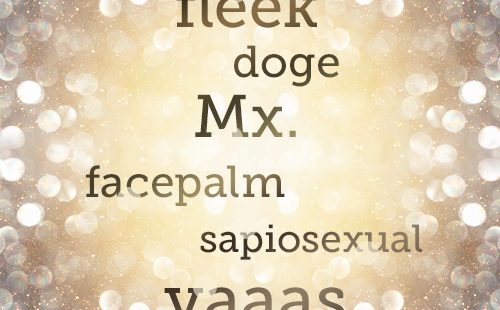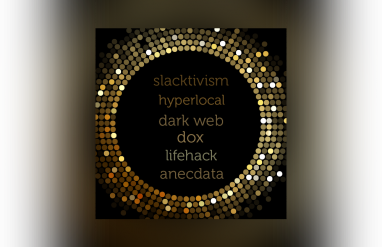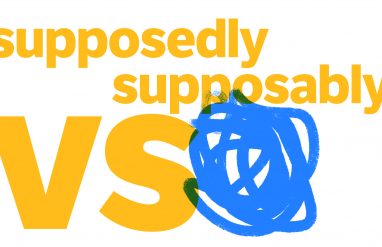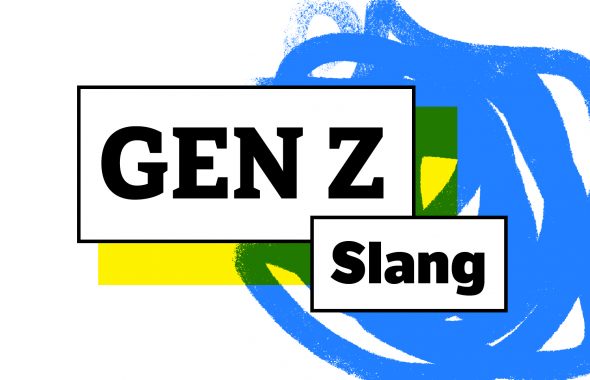In our November 2015 update to the dictionary, we added more than 150 new words and definitions, and revised over 1,000 entries. New additions such as feels, yaaas, and doge highlight the role of social media in transmitting and popularizing new terms, while fitness tracker, digital wallet, and Internet of Things demonstrate the new ways that technological innovation is changing the way we live and speak IRL (in real life). Additionally, new entries such as sapiosexual and the gender-neutral prefix Mx. reflect cultural conversations surrounding gender and sexuality.
A handful of words added in the latest update first gained currency on social media platforms. Dictionary.com users will now be able to look up the word fleek, defined as “flawlessly styled, groomed, etc.” The virality of this slang term, often found in the phrase on fleek, contributed to a massive increase in lookups over the last year. Dictionary.com lexicographers have access to billions of data points in search lookups, which they analyze to better understand interest and demand.
New definitions for the gaming words tabletop, nerf, and respawn come on the heels of the addition of esports to the dictionary in May. And new definitions for the familiar terms asterisk and random reflect shifts in usage in recent years. Asterisk’s new definition is “any factor or element that makes an otherwise outstanding achievement somewhat doubtful or less impressive,” as in His win at the spelling bee came with an asterisk because two of the county’s top spellers were unable to compete. Likewise, random was updated to reflect the slang noun definition commonly used in reference to a person or thing that is unknown, unidentified or suspiciously out of place, as in a few randoms showed up to the party.
In addition to looking to our users to determine what words to add, Dictionary.com lexicographers rely heavily on the time-honored practice at the foundation of dictionary writing: reading widely. Scouring sources from literature to scientific journals to news media outlets, our lexicographers are able to find and pinpoint both completely new words as well as words that are shifting in meaning and need new definitions.
Here’s a selection of words added in this update and their definitions:
asterisk: any factor or element that makes an otherwise outstanding achievement somewhat doubtful or less impressive.
bestie: Informal. a person’s best friend.
Creative Commons: a set of various licenses that allow people to share their copyrighted work to be copied, edited, built upon, etc., while retaining the copyright to the original work.
digital citizen: a person who develops the skills and knowledge to effectively use the Internet and other digital technology, especially in order to participate responsibly in social and civic activities.
digital wallet: an electronic device, website, software system, or database that facilitates commercial transactions by storing a consumer’s credit card, shipping address, and other payment data.
doge: an Internet fad or meme typified by an image of a dog of the Shiba Inu breed accompanied by very short phrases that humorously represent the dog’s imagined thoughts and use the wrong modifiers or shortened word forms, as “such dignified” or “amaze.”
drunk text: to send a text message to someone while intoxicated.
EGOT: the honor of winning at least one Emmy, Grammy, Oscar, and Tony in competitive rather than honorary categories.
facepalm: the gesture of placing the palm of one’s hand across the face, as to express embarrassment, frustration, disbelief, etc. (often used as an interjection).
feels: Informal. strong, often positive feelings.
fitness tracker: a wearable electronic device or a software application that monitors one’s physical fitness and daily physical activity.
fleek: Slang. flawlessly styled, groomed, etc.
Franken-: Slang. a combining form used before something that is a hybrid of disparate parts, and meaning “strange or frightening.”
Internet of Things (IoT): a network of everyday devices, appliances, and other objects equipped with computer chips and sensors that can collect and transmit data through the Internet.
IRL: in real life (in contrast with communication and interaction online or in a fictional situation).
KenKen: Trademark. a brand name for a numerical logic puzzle printed on a grid subdivided into clusters of squares, or cages, the object of which is to fill in the squares so that each column and row do not repeat digits, and all the numbers within a cage combine together using the specified arithmetic operation to equal a target number.
kk: Informal. (used in text messages and other digital communications) okay; OK.
matchy-matchy: Informal. (of an outfit, décor, etc.) having colors or patterns that match or harmonize too closely.
Mx.: a title of respect prefixed to a person’s surname: unlike Mr., Mrs., or Ms., it does not indicate gender and may be used by a person with any or no specific gender identity.
nerf: Slang. (in a video game) to reconfigure (an existing character or weapon), making it less powerful.
neurodiversity: the variation and differences in neurological structure and function that exist among human beings, especially when viewed as being normal and natural rather than pathological.
random: Slang. a person or thing that is unknown, unidentified, or suspiciously out of place.
respawn: (of a character or item in a video game) to reenter an existing game environment at a fixed point after having been defeated or otherwise removed from play.
sapiosexual: a person who finds intelligence to be a sexually attractive quality in others.
shootie: Informal. a woman’s shoe that reaches, covers, or extends just above the ankle.
tabletop: noting or relating to a type of game that requires the physical presence of players and the manipulation of game pieces, as board games and some card games or role-playing games but not video games.
TBH: to be honest.
yaaas: Slang. Yes! (used as a strong expression of excitement, approval, agreement, etc.)














